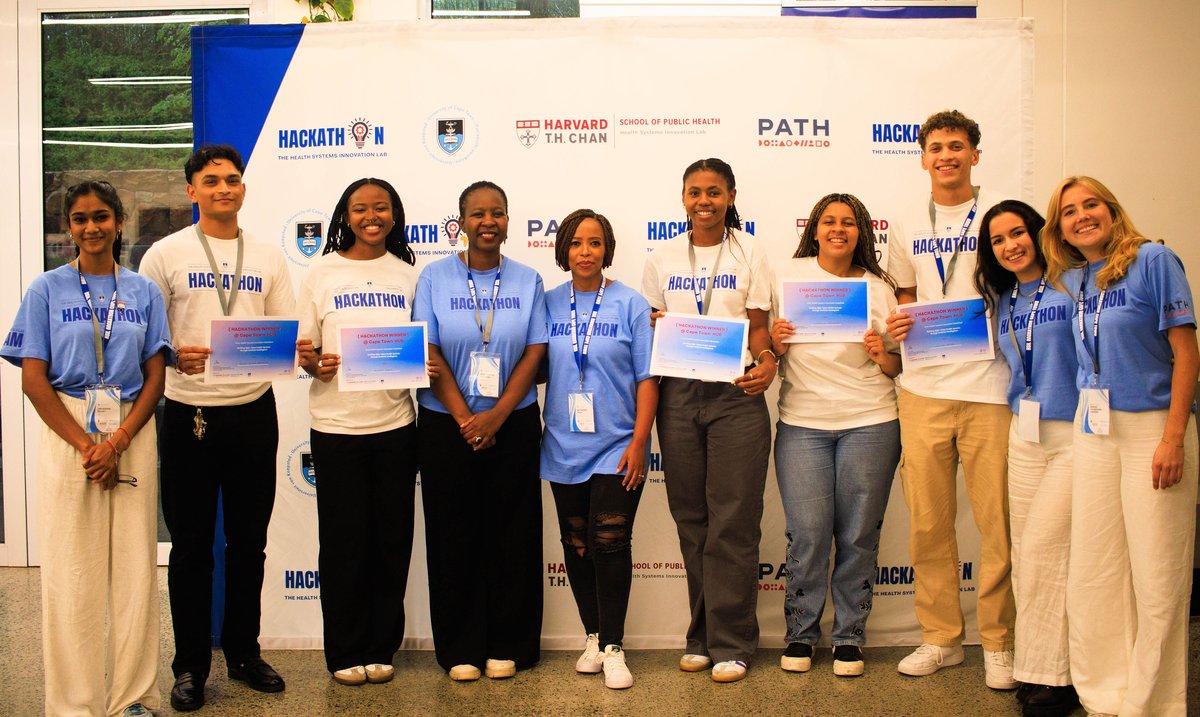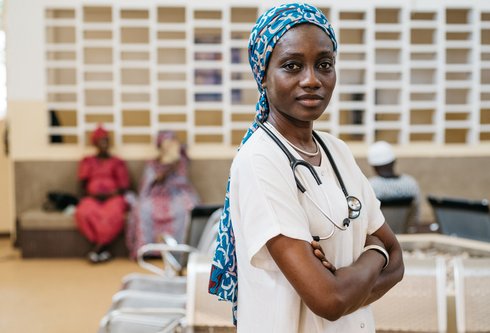This annual global initiative, organized by Harvard’s Health Systems Innovation Lab, attracted over 2,500 participants across 19 hubs worldwide. At each hub location, participants attended two-day in-person events to tackle critical health system challenges through innovative solutions. Judges at each hub chose a top team to compete in virtual global rounds for opportunities for venture-building mentorship and pitching to investors.
The South Africa hackathon was funded by Discovery Limited; supported by the South African government’s Department of Science, Technology and Innovation and Department of Health and Satrix; and co-hosted by PATH South Africa and the University of Cape Town’s Division of Global Health Surgery. The event brought together students, young professionals, technology start-ups, and experts to tackle one pressing question: How can we build smarter, more inclusive health systems using AI?
“Our teams were genuinely excited to be part of the program and to mentor participants. We are proud to be a long-term partner because we believe innovation is key to transforming our health care system and improving lives more broadly.”— Dr. Noluthando Nematswerani, Chief Medical Officer, Discovery Limited
Held under the theme “Building High-Value Health Systems: Leveraging Artificial Intelligence,” the event marked a milestone for South Africa’s innovation landscape, connecting local talent to a global network of changemakers working to develop groundbreaking and practical solutions that can challenge the status quo and transform health care.
A platform for bold ideas
The South Africa hackathon location was at the University of Cape Town (UCT) and dubbed the UCT Hub. It attracted over 80 applicants from diverse fields, including medicine, engineering, research, and software development. Eleven teams were selected to participate, presenting ideas ranging from AI-powered triage tools to a scar-fixing app. The interdisciplinary collaboration reflects the hackathon’s emphasis on cross-disciplinary thinking to develop innovative solutions.
Speaking on behalf of the judging panel, Assoc. Prof. Lionel Green-Thompson, Dean of the Faculty of Health Sciences at UCT, commended the participants:
“I was incredibly impressed by the quality of work presented. Many of the solutions focused on easing the burden on individuals, which reflects how our health system has become overly individualized. What stood out was the need to think beyond the interpersonal and address systemic challenges.”
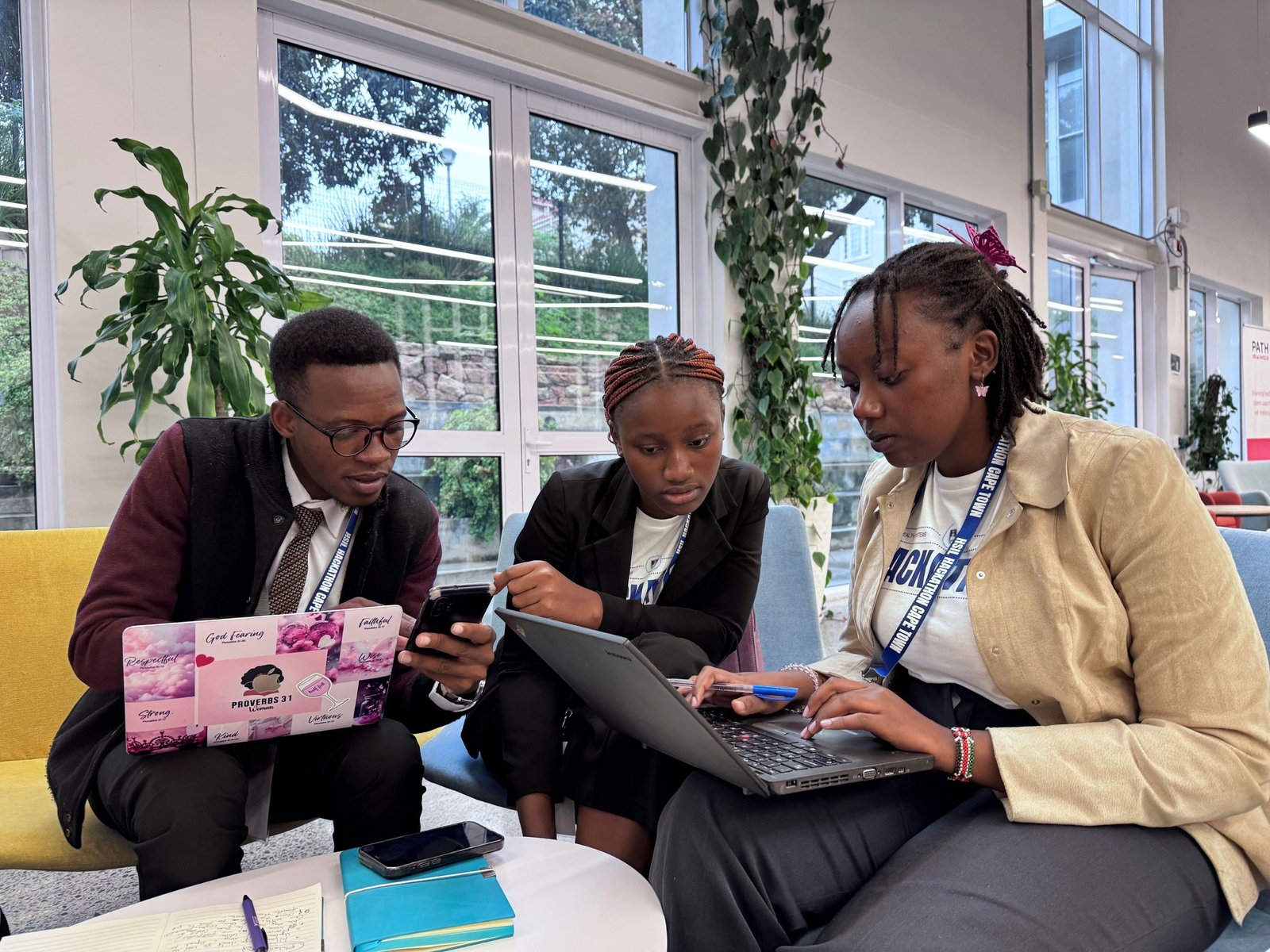
Three hackathon participants work together at the University of Cape Town, South Africa. Photo: PATH/Sintha Chiumia.
Top innovations from the UCT Hub
Out of the 11 teams that participated at the UCT Hub, the following 3 received top honors.
Winner: Authentic Intelligence
Authentic Intelligence developed Street Smartz, an interactive game that teaches children about bodily autonomy, consent, and safety. The app aims to prevent sexual abuse and equip children with knowledge.
“Authentic Intelligence stood out for its systemic approach to a deeply rooted social issue. It didn’t just address a symptom—it engaged with the broader system of care and education,” said Assoc. Prof. Green-Thompson.
Runner-up: Tri-AI-ge
Tri-AI-ge created a multilingual AI-powered app by the same name that guides patients to the appropriate level of care, reducing unnecessary visits to higher-level facilities and improving early diagnosis. It also includes a carpool feature for local patients.
Third Place: Access Transformers
Access Transformers developed DigiMama, an app for mothers with gestational diabetes that tracks glucose levels, sends reminders, and provides accurate health information.
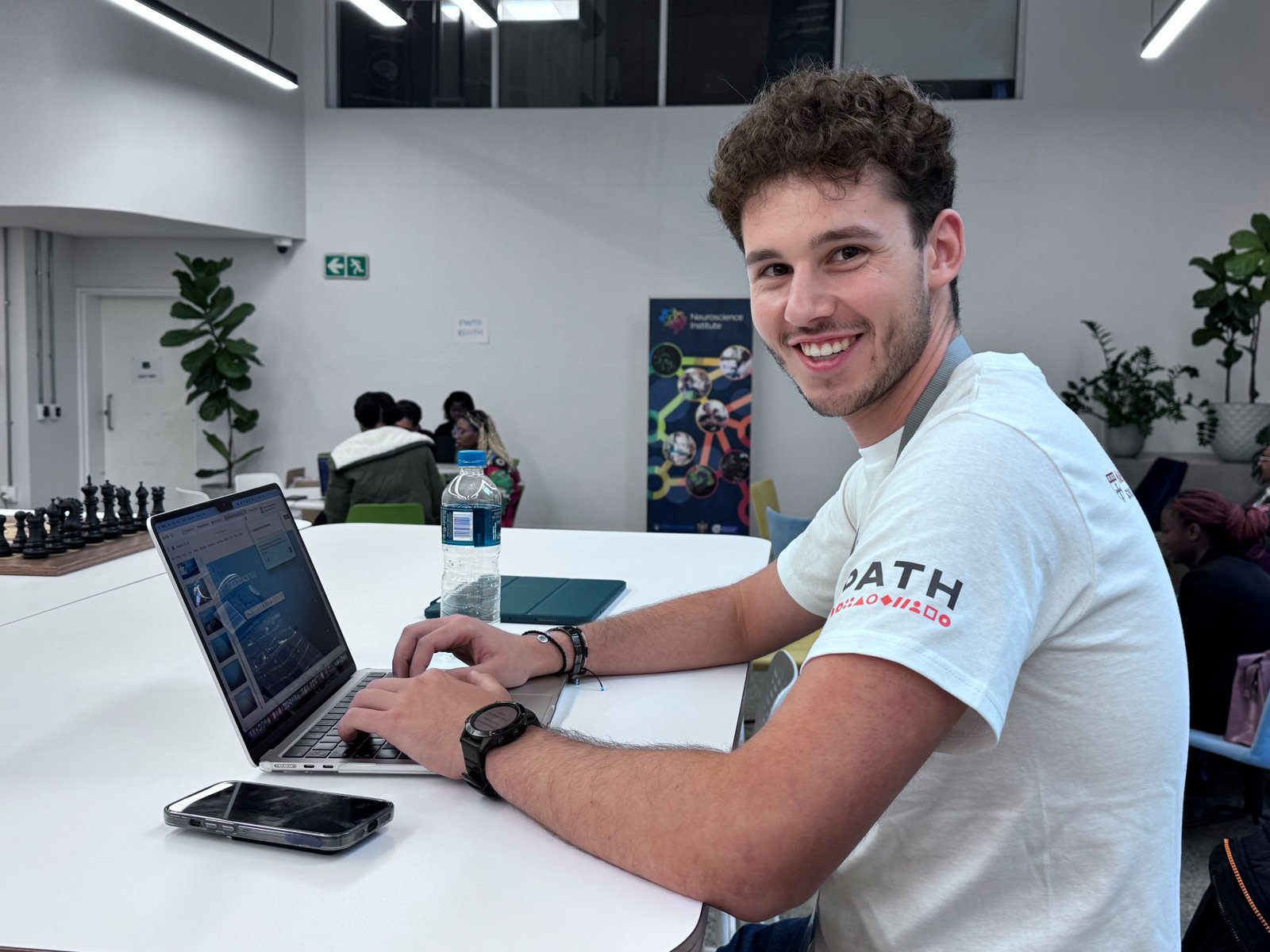
A hackathon participant types on a laptop during the event at the University of Cape Town, South Africa. Photo: PATH/Sintha Chiumia.
The road to global recognition
Authentic Intelligence’s Street Smartz did not stop at the UCT Hub—it continued to shine on the global stage. The team advanced through multiple stages, held virtually, of the Harvard Health Systems Innovation Hackathon. In Stage I: Bootcamp 1 (April 21–May 2), 42 teams participated in virtual sessions and received mentorship from Harvard faculty, culminating in the selection of the top 20 teams. During Stage II: Bootcamp 2 (May 5–16), these teams refined their pitches and business models with targeted coaching and expert-led sessions. A global panel of health systems investors and experts then selected the top ten ventures.
“I was incredibly impressed by the quality of work presented. Many of the solutions focused on easing the burden on individuals, which reflects how our health system has become overly individualized.”— Prof. Lionel Green-Thompson, Dean, Faculty of Health Sciences at UCT
The top ten teams—including Authentic Intelligence—engaged in hypothesis testing, user validation, and growth strategy development. Ultimately, six teams were selected to pitch at Demo Day on June 27 to a panel of investors, venture capitalists, and global health leaders. Authentic Intelligence was among them. At the Demo Day, three ventures garnered investor attention.
“Street Smartz is tackling a niche and highly important challenge, and their solution is going to lead to a transformational change within the continent and globally,” said Prof. Rifat Atun, the Director of the Harvard Health Systems Innovation Lab and Vice Dean for Non-Degree Education and Innovation at the Harvard T.H. Chan School of Public Health.
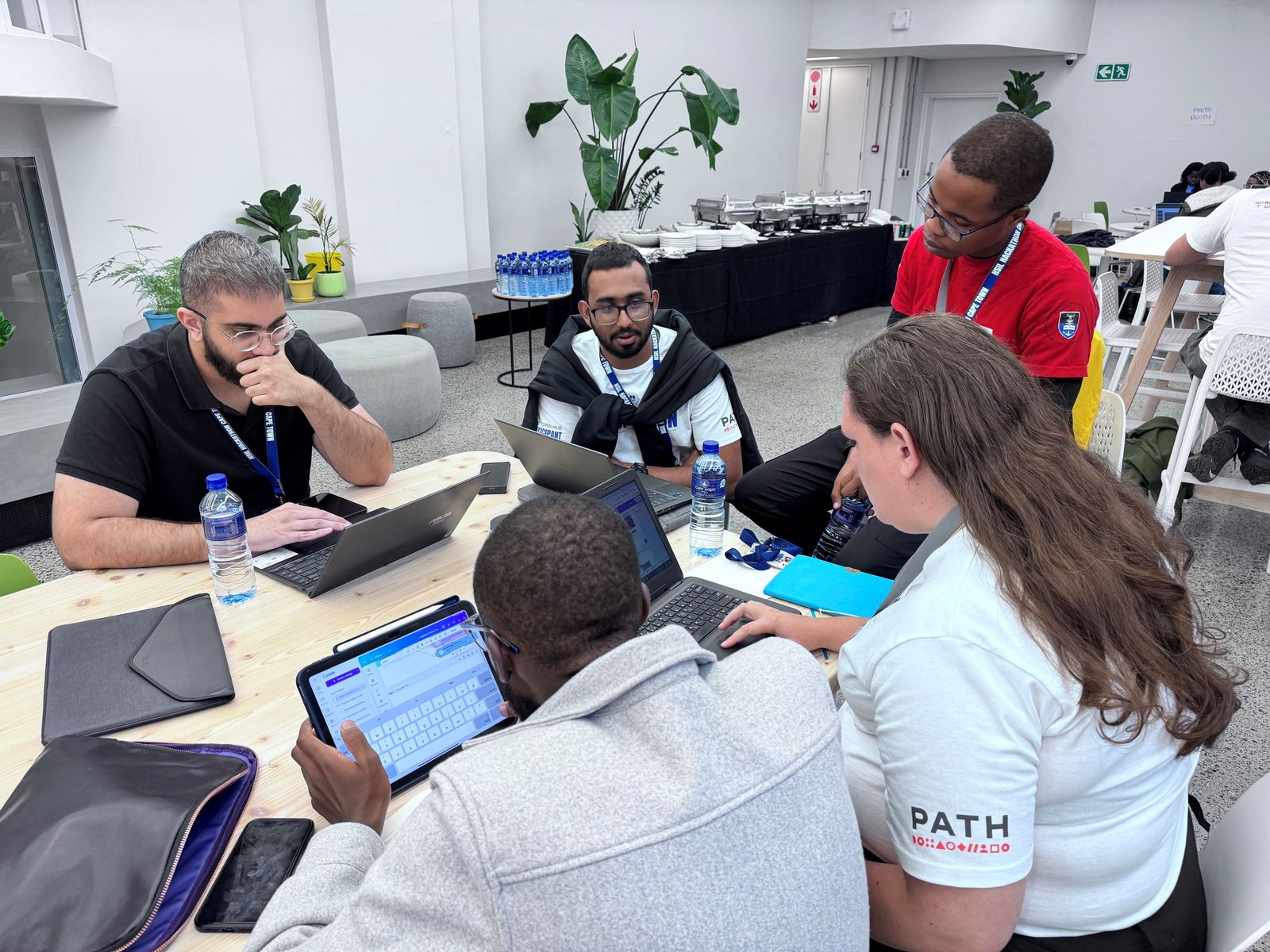
A group of hackathon participants in discussion at the University of Cape Town, South Africa. Photo: PATH/Sintha Chiumia.
A partnership for change
Discovery Limited’s commitment to the hackathon extended beyond financial support. Discovery teams actively mentored participants and shared their expertise in health care innovation and digital health solutions. Dr. Noluthando Nematswerani, Chief Medical Officer at Discovery Limited, emphasized the importance of collaboration:
“Discovery is at the forefront of innovation, particularly in health care. We are a company driven by a vision to change lives through innovation, and this hackathon has been an incredible partnership. Our teams were genuinely excited to be part of the program and to mentor participants. We are proud to be a long-term partner because we believe innovation is key to transforming our health care system and improving lives more broadly. AI is already here—and it’s making a difference.”
“This hackathon shows what’s possible when academia, government, civil society, and the private sector work together.”— Nothemba Kula, PATH South Africa Country Representative.
Nothemba Kula, PATH South Africa Country Representative and Partnerships Liaison for the Africa Region, echoed the sentiment:
“This hackathon shows what’s possible when academia, government, civil society, and the private sector work together. This event was a huge success. We look forward to nurturing the winning ideas and hosting an even bigger hackathon next year.”
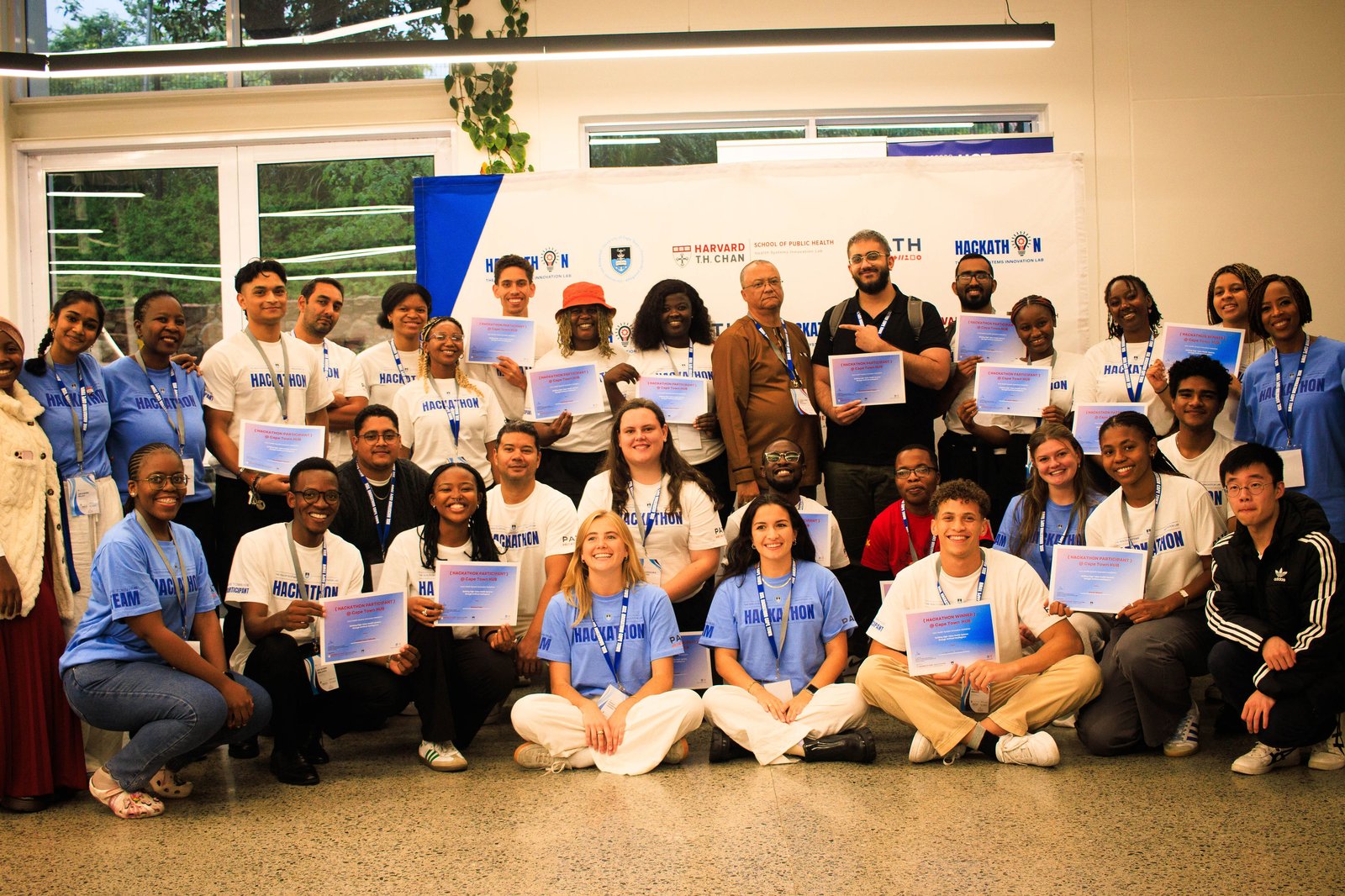
The hackathon participants pose with University of Cape Town’s Assoc. Prof. Lionel Green-Thompson (in brown shirt) and the organizers. Photo: PATH/Rams Visuals.
PATH’s digital expertise in action
PATH also contributed significantly to the hackathon by providing three expert mentors who brought a wealth of experience and insight to the participating teams. These included Carl Fourie, Deputy Director of Digital Services; Linda Taylor, Technical Program Manager from the Center of Digital and Data Excellence; and Susan Lin, Regional Policy Lead for Health Research and Development. Their guidance helped shape the teams’ approaches to digital health innovation, ensuring that solutions were not only technically sound but also aligned with real-world health system needs.
Taylor reflected on the experience: “What stood out was the interdisciplinary collaboration—medical students, engineers, computer scientists, even finance students. That’s what digital health needs. We helped teams focus on defining the problem before jumping to solutions and emphasized the importance of sustainable business models.”
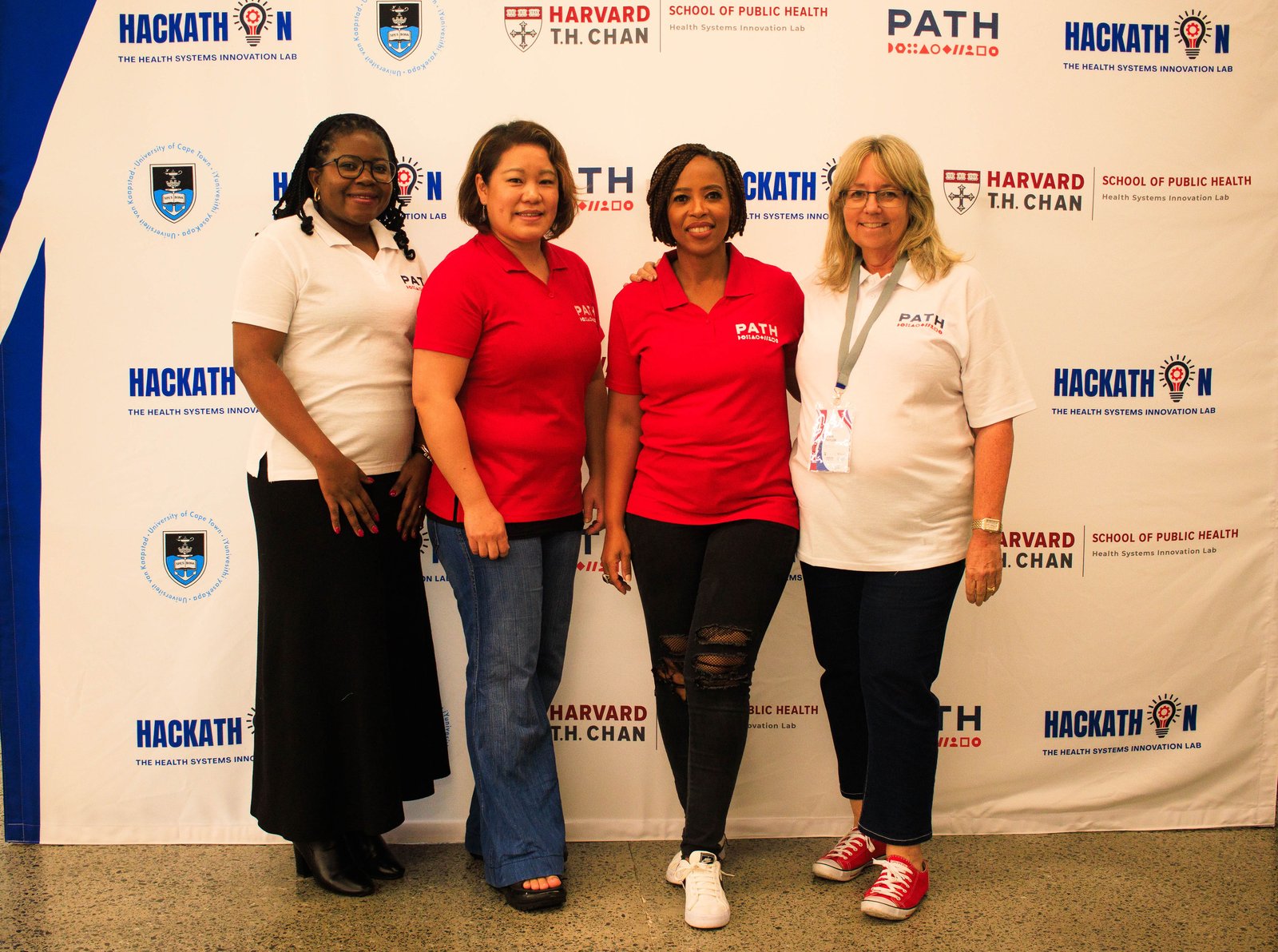
Part of the PATH delegation at the hackathon at the University of Cape Town (left to right): Sintha Chiumia, Susan Lin, Nothemba Kula, and Linda Taylor. Photo: PATH/Rams Visuals.
Looking ahead
Street Smartz’s journey reflects the power of innovation rooted in empathy, collaboration, and systemic thinking. The hackathon was more than a competition—it was a launchpad for ideas that could reshape health care in South Africa and beyond.
